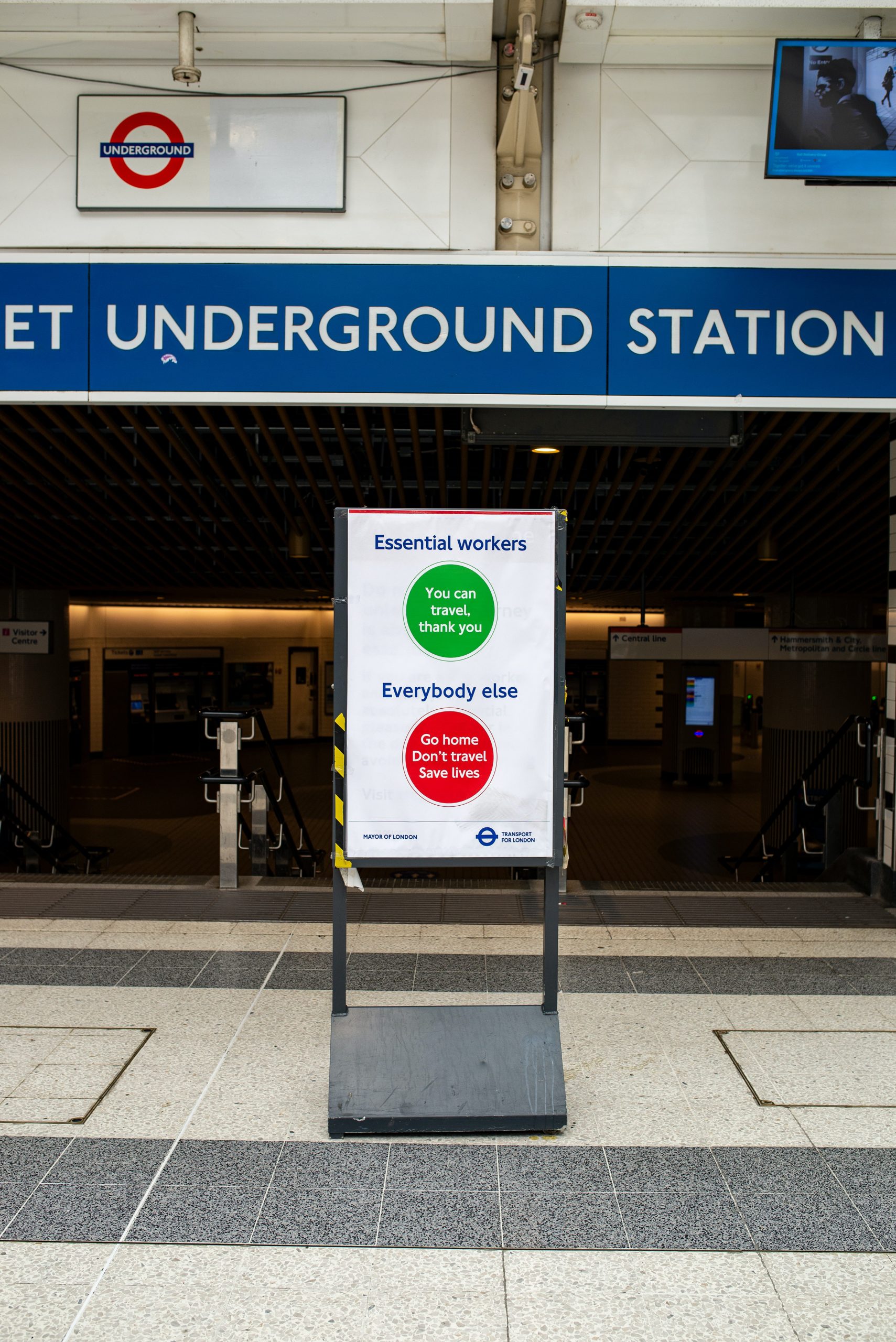
Analysis: How the delta variant affects the global economy!

When the entire world was attempting to resume its journey toward a more economically sound environment following the Covid-19 outbreak, the rise of the delta variant dashed all hopes, and the economy appeared to be shattered once more as a result of the Covid restrictions and lockdown. However, most countries are now working to relax their restrictions and are anticipating the reopening of stores, businesses, and workplaces.
At the beginning of June 2021, Delta variant cases drew the attention of people all over the world. The Delta variant, which was first identified in India, has been reported in 135 countries, according to the World Health Organization. In the UK, 75,953 Delta cases were decoded until the middle of June. As of the start of June, there were 2,853 Delta cases in the United States, 747 in Germany, 277 in Spain, and 97 in Denmark, according to a global monitoring website.
UK
When it comes to delta variants, the United Kingdom appears to be one of the most affected countries since the Covid-19 situation arose.
In the last 28 days, 38,000 cases of the Delta variant have been reported in England. According to the experts, the number of cases introduced into the UK in a short period due to the volume of travel is indeed a large determinant.
Travelers introduced the variant at least 500 times, according to data from Public Health England. Dr. Jeffrey Barrett of the Sanger Institute, which examines the genetic material from Covid-test swabs to determine which mutations are present, believes the true number is likely to be higher than 1,000.
In England, all Covid-related restrictions were almost lifted. Public-health restrictions would be relaxed, and people would have to make a decision what threats people are willing to accept when wearing masks or preventing crowds.
Mr. Johnson, the Prime Minister of England, given a message urging people to exercise caution and stating that the virus still exists.
Russia, on the other hand, reported 820 deaths and 21,438 cases in a government tally.
The number of daily cases in the capital increased to 3,445, up from 1,991. According to reports, the increase is due in part to a seasonal surge in respiratory illnesses and increased contact between people following the summer vacation.
Russia has recorded more than 7 million cases and 201,445 deaths since the pandemic began, the highest death toll in Europe.
According to a survey released on Tuesday, consumer sentiment in Germany unexpectedly improved in October, reaching its highest level in more than a year and a half, indicating that households in Europe’s largest economy continue to support the recovery.
The GfK institute reported that its consumer sentiment index increased to 0.3 points in October from a revised -1.1 point the previous month, based on data from a survey of approximately 2,000 Germans. The result was less than the -1.6 predicted by Reuters.
According to GfK, economic and income preconceptions have significantly improved, while the natural proclivity to buy has slightly increased.
US
As per the Centers for Disease Control and Prevention (CDC), between 80 and 87 % of all COVID-19 cases in the United States occurred in the first two weeks of July, up from 8 to 14 % June. Because of the variant’s rising rapid spread, cases have increased from 13,500 daily cases on average in early June to 92,000 on August 3. When it comes to the economy, The US economy is expected to slow down rather than accelerate in September.
According to NABE, the coronavirus will continue to be the most important factor influencing the US economy for the rest of the year and into 2022. The National Association of Business Economists (NABE) is the world’s largest organization of applied economists, strategists, academics, and policymakers dedicated to economics’ application. According to the survey, the panel expects 5.6 % full-year economic growth, down from 6.7 % in the previous NABE survey in May. Nonetheless, economists raised their growth forecast for 2022 to 3.5 percent from 2.8 % earlier. Nearly half of the panelists, the fastest vaccine ramp-up would boost the economy the most this year and next. According to a Department of Labor report, the number of Americans filing for weekly unemployment benefits increased for the second week in a row to 351,000, indicating that the job market is struggling as the US deals with an increase in COVID-19 cases. Because job growth fell short of expectations as the Delta variant spread last month, many small businesses were forced to reimpose COVID-19 rules.
South Africa
According to reports, over 8,300 SARS-CoV-2 Delta variant cases have been confirmed in Africa since August 26, 2021. The Delta variant has infected over 25 African countries, with South Africa topping the list. The Delta variant, discovered in India, is extremely infectious and spreads much faster than other variants. More than seven million cases of COVID-19 have been reported in Africa since the outbreak began.
According to reports, South Africa’s average Covid-19 case per million people has risen to around 333 in recent weeks, clearly making it one of the region’s worst-affected countries per capita. (Bloomberg)
South African President Cyril Ramaphosa also implemented a few relaxations and a five-level lockdown strategy that allows restaurant chains, bistros, fitness centers, and health clubs to reopen with 50 % of their potential and ability to adhere to Covid guidelines. Auctions of agricultural livestock and game would be permitted, subject to certain restrictions.
According to a recent report, South Africa’s GDP increased by 1.2 % in the second half of 2021, an increase of 19.3 % over the first half. However, due to rising electricity, fuel, and food prices, the consumer price index (CPI) increased by 0.8 % compared to the previous month.
Nearly 8000 full-time jobs and 28000 indirect jobs are expected to be created by the N2 Wild Coast Road project. The N2 Wild Coast Road project, which connects four provinces, is expected to boost economic activity, according to President Cyril Ramaphosa.
Asia
This year has seen an increase in covid cases in many Asian countries, with India experiencing the second wave of cases and a large number of deaths in the first half of 2021. Incorporating the coronavirus was relatively successful in most Asian countries in 2020. With 17,786 cases reported on July 31 and a daily death rate of 219 on August 2, Malaysia was one of Asia’s hotspots for the delta variant. The number of daily cases and deaths increased the most on July 31.
A portion of Thailand’s recent increase in covid infections and deaths has been attributed to the Delta variant.
According to the Thai government, the Delta variant is responsible for 60% of cases, with the figure reaching as high as 80% in Bangkok.
Vietnam had reported less than 100 deaths since the pandemic began in 2020 until early July, but by 1 August 2021, that number had risen to more than 1,300.
Southeast Asia has the highest COVID-19 death rate in the world, due mainly to the Delta variant and uneven global vaccine distribution.
Hospitals across Southeast Asia are still being overwhelmed by unprecedented outbreaks, from Vietnam to Malaysia and Myanmar, raising concerns about increased suffering and death as COVID-19 spreads from cities to rural and regional areas.
According to the World Bank, the spread of the COVID-19 Delta variant has hampered the region’s healing, as well as slowed economic growth and increased imbalance.
All economic activity began to slow in the second quarter of 2021, according to the World Bank’s East Asia and Pacific Fall 2021 Economic Update, and growth forecasts for most countries in the region have been revised downward.
Reportedly, growth predictions for developing Asia have been slightly revised downward: from 7.3 % in April ADO to 7.1 % in 2021, and up to 5.4 % in 2022 from 5.3 %. In 2021, inflation is expected to be 2.2 %, rising to 2.7 % in 2022.
The economy, which is currently experiencing a downturn as a result of the virus, is one of the most important factors that could help control the Covid-19 virus by producing vaccines. When the entire world believes the virus has been eradicated, new variants prove them wrong. In this scenario, economic activity must continue while all necessary precautions are taken.






